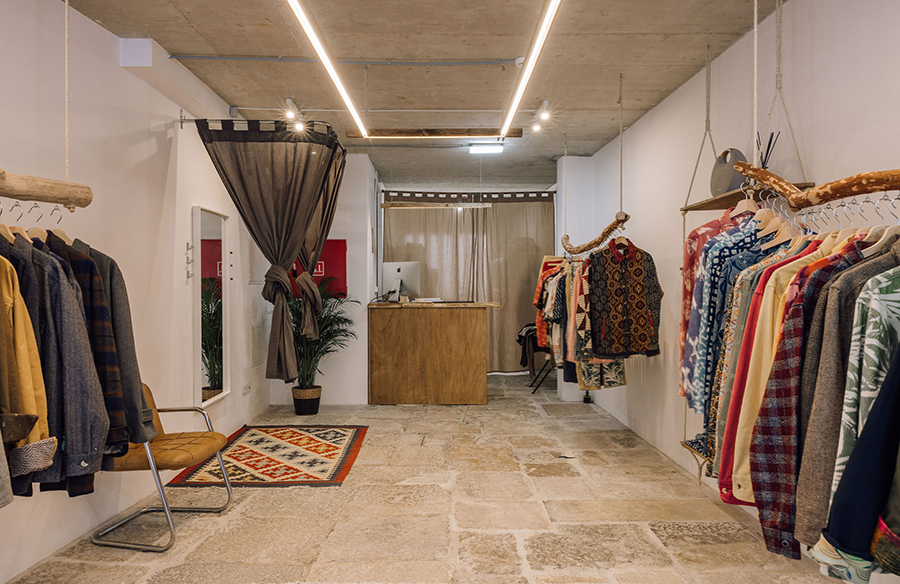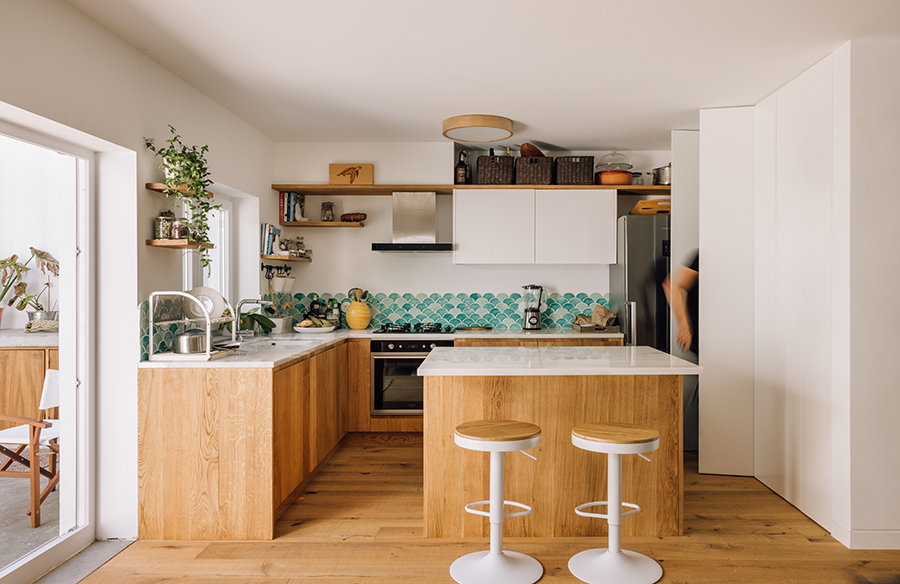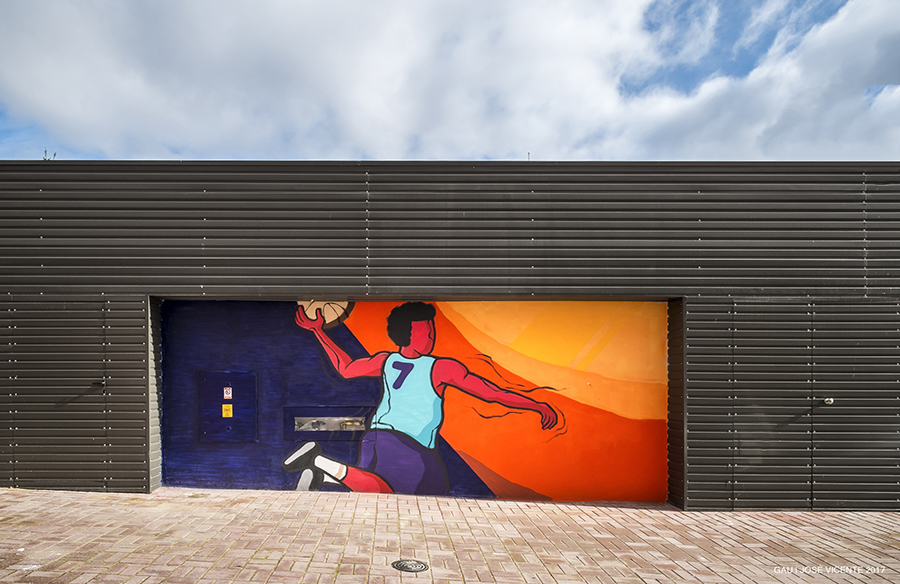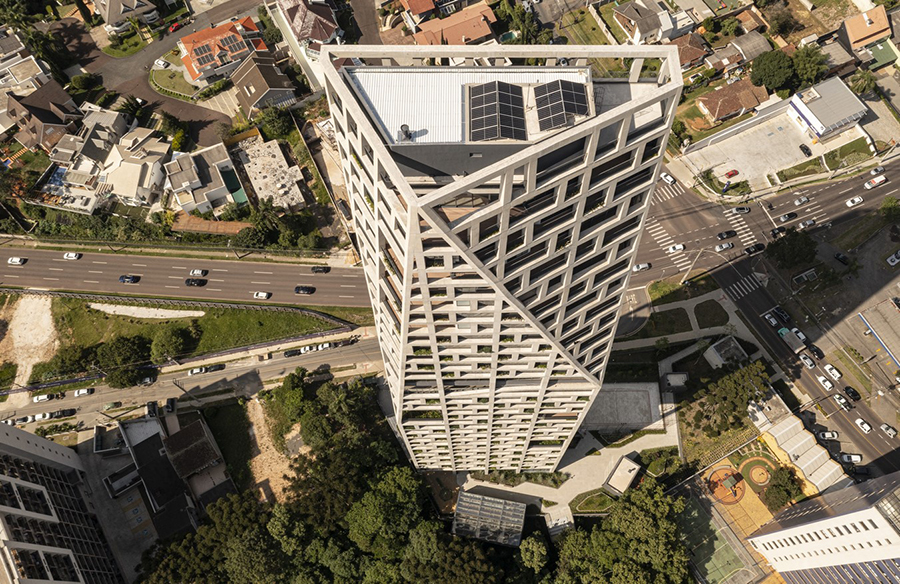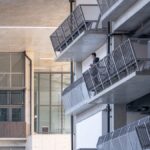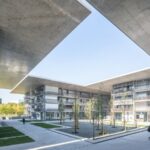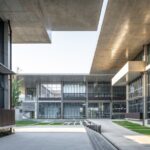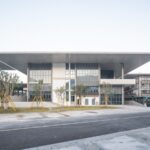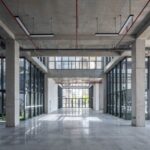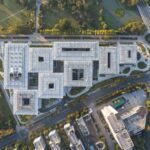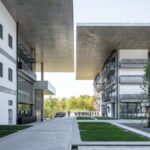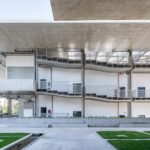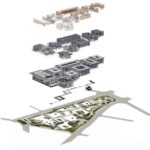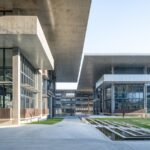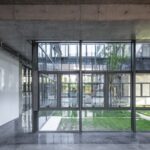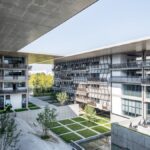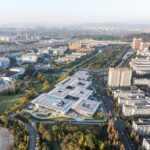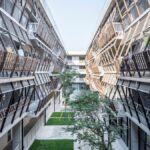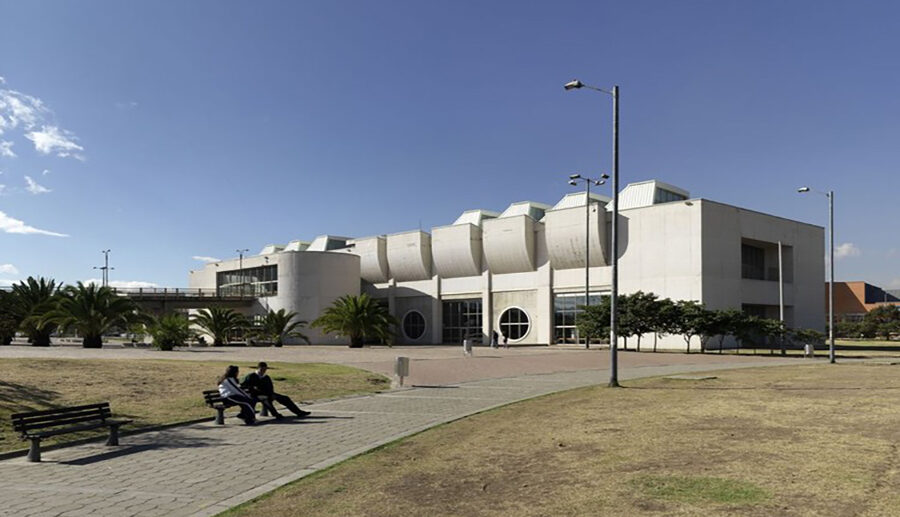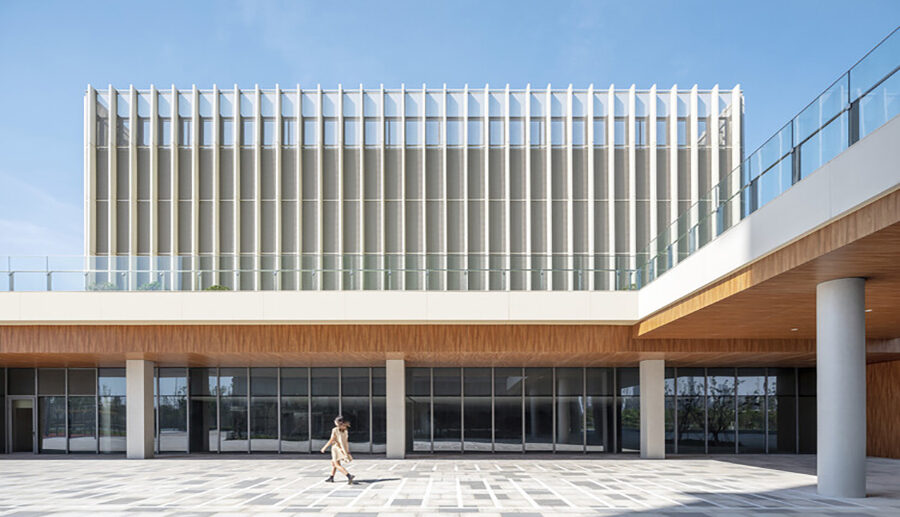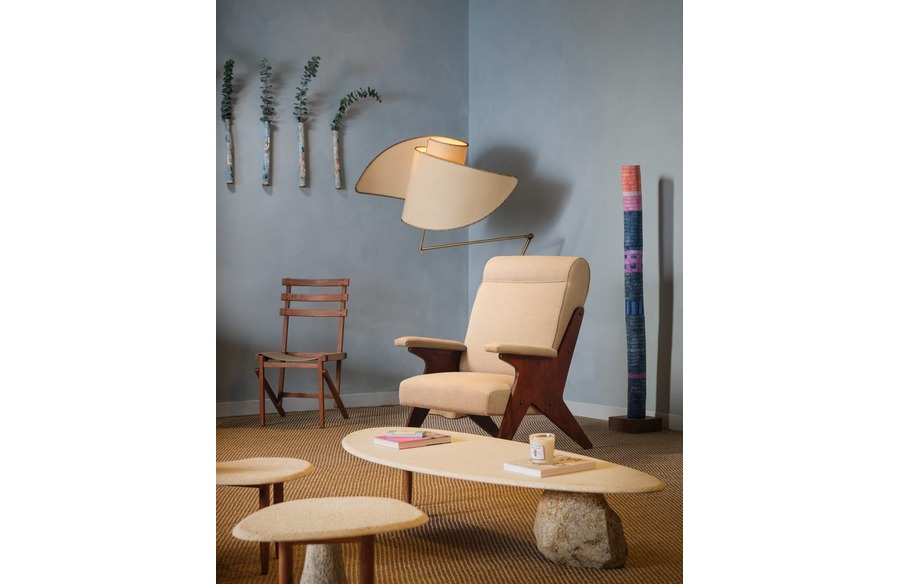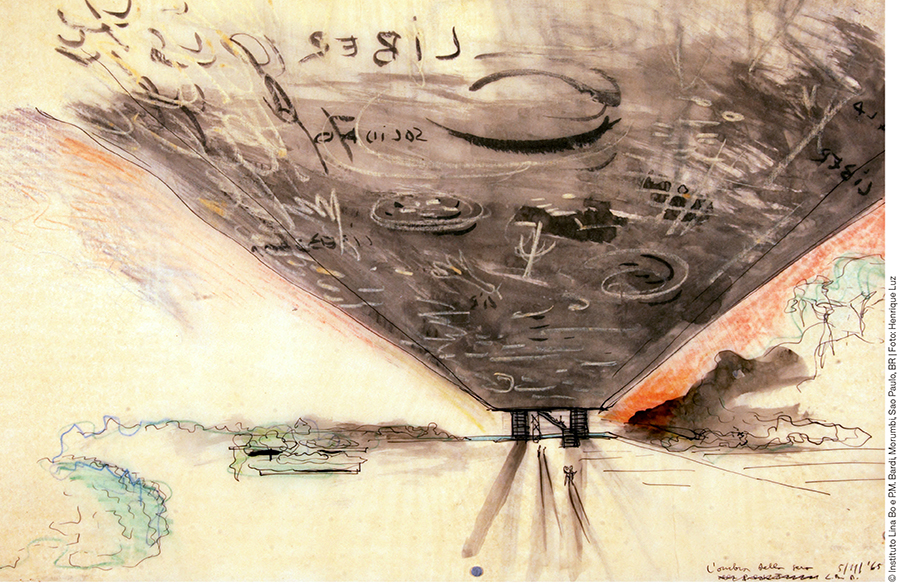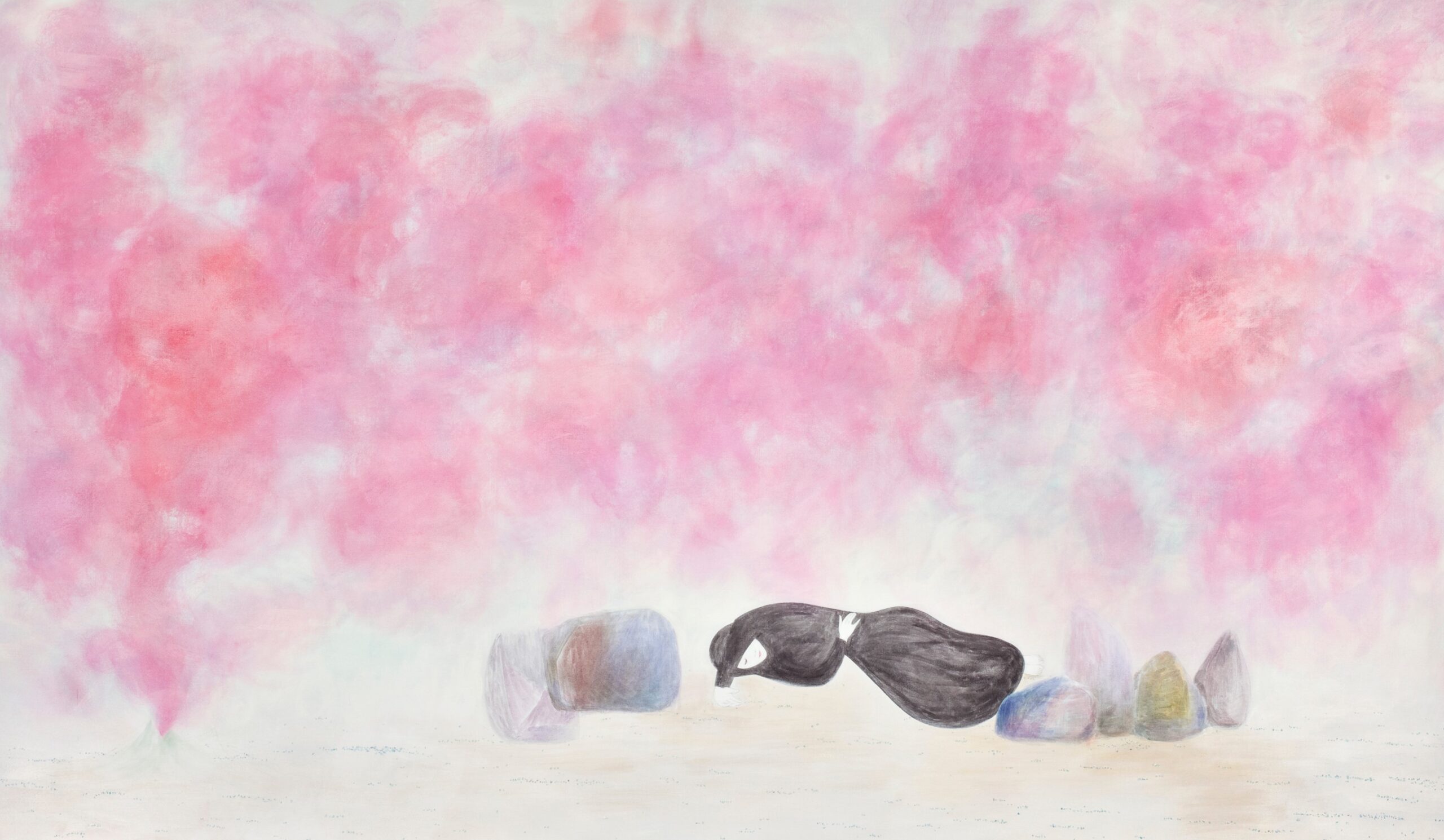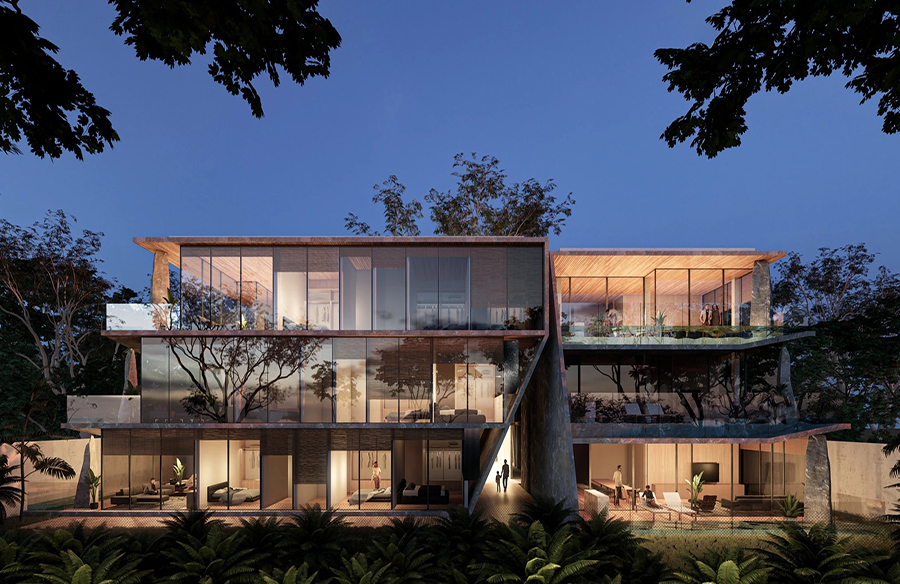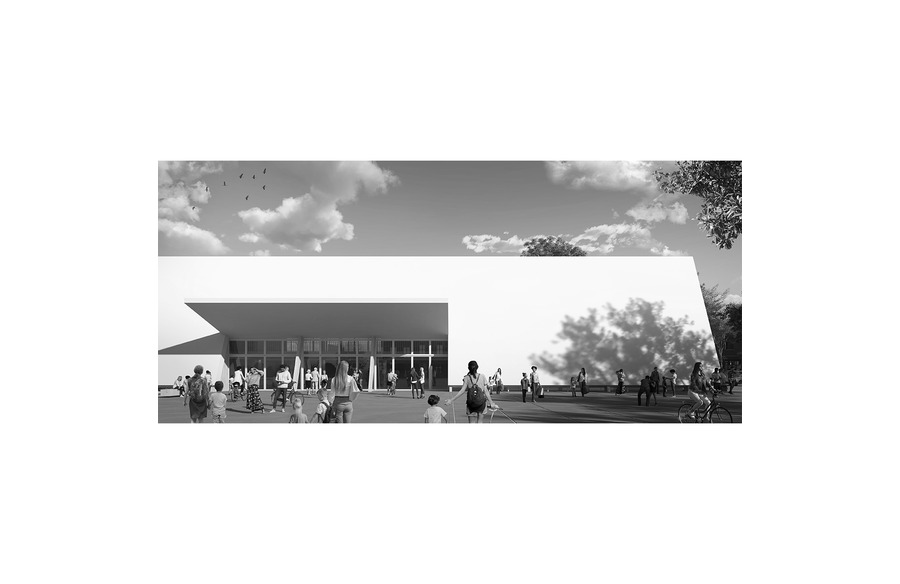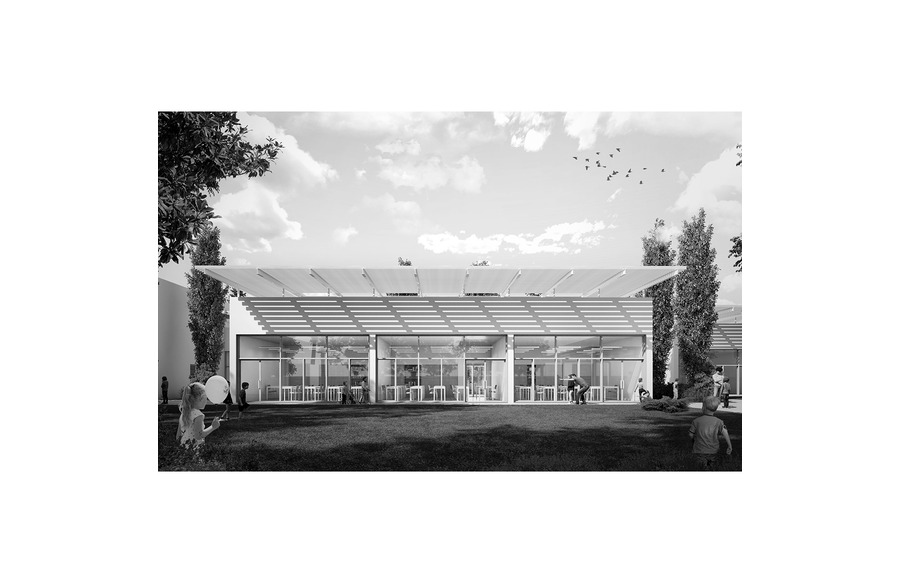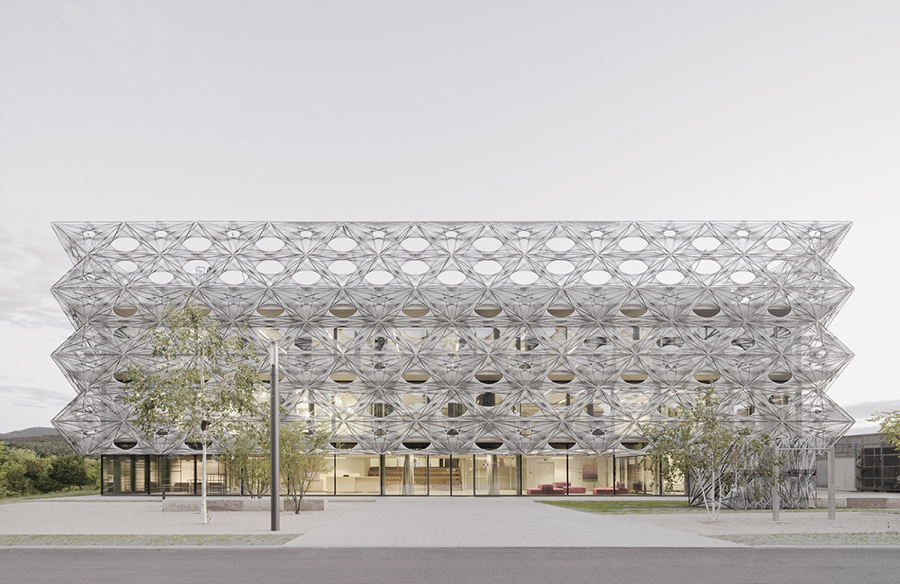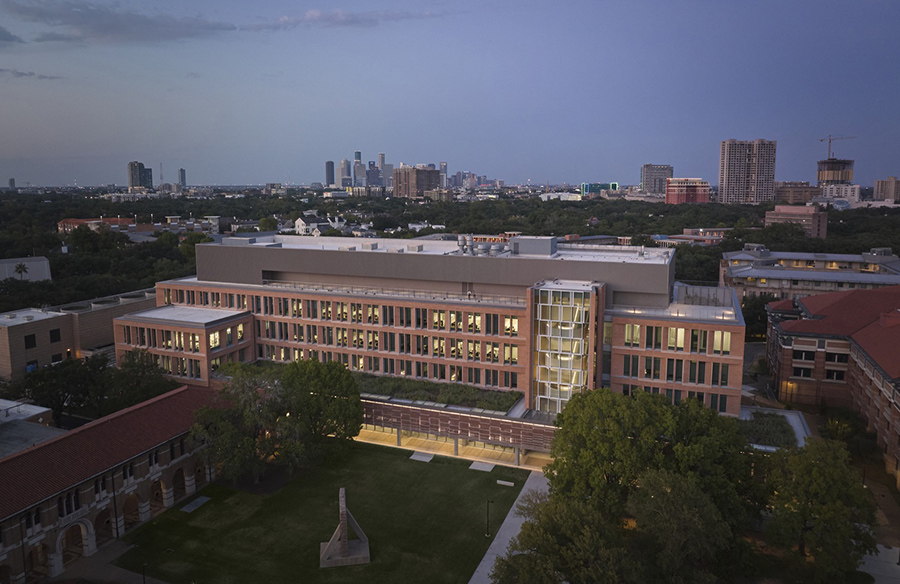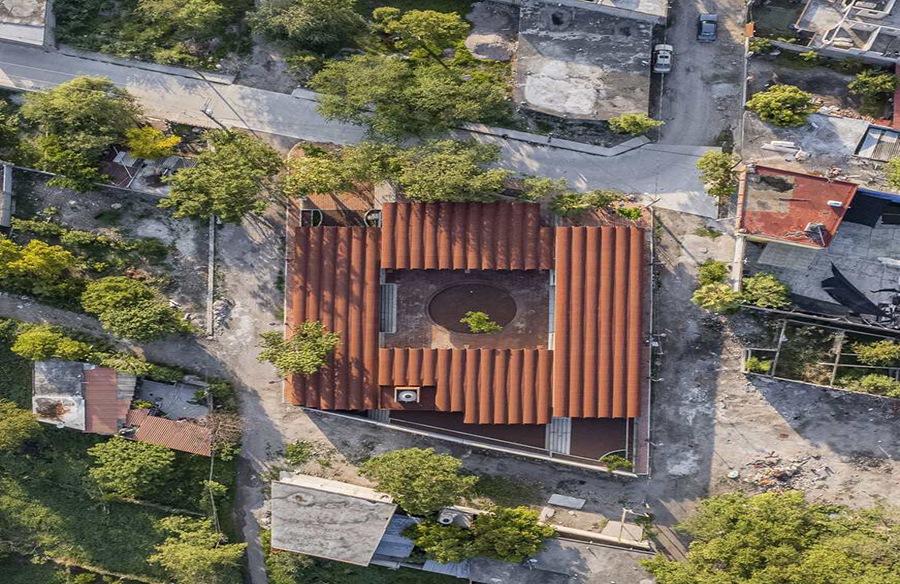Harmonizing Architecture with Nature Wenzhou Medical University International Exchange Center
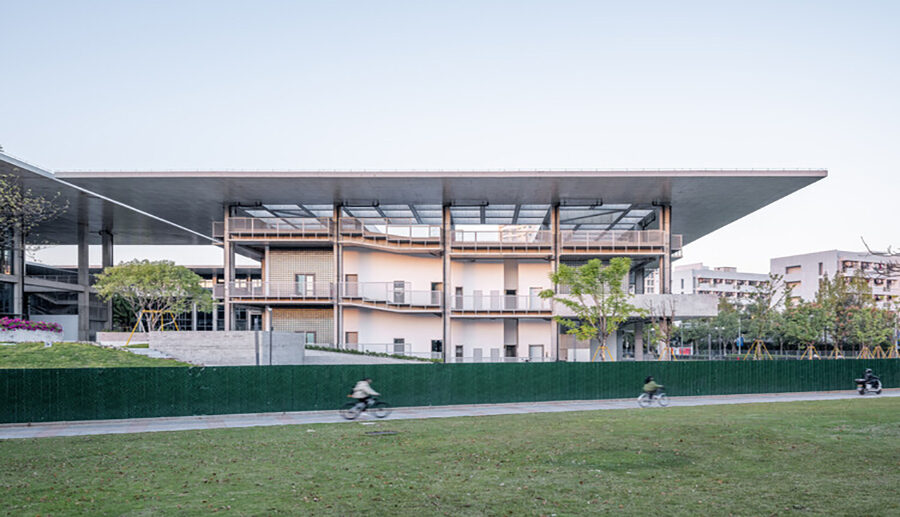
Architects: Atelier FCJZ
Area: 38770 m²
Year: 2023
Photographs: Fangfang Tian
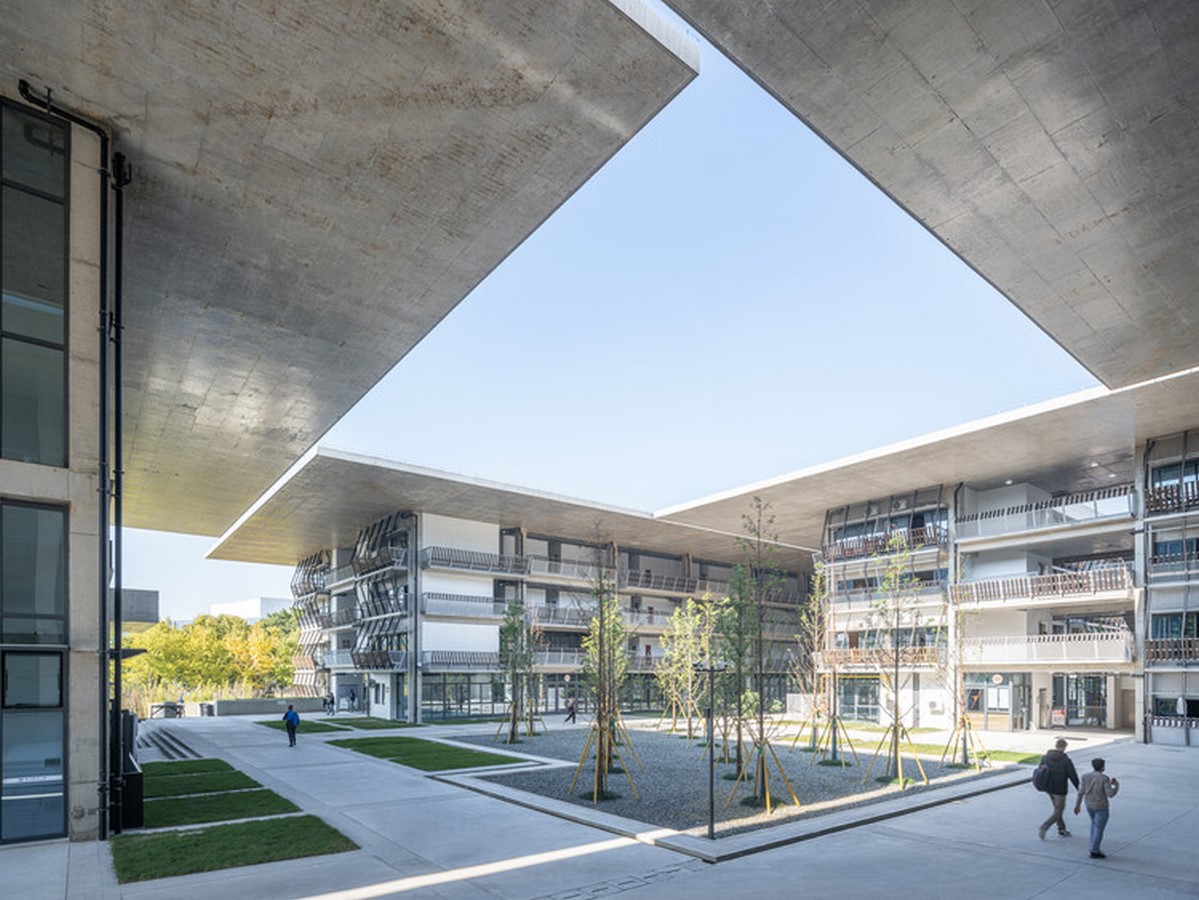
Climate-Inspired Design in Wenzhou
Wenzhou, a city known for its mild climate, served as the muse for the Wenzhou Medical University International Exchange Center. Imagining a closer bond between people and nature, the design accentuates outdoor activities and specific living experiences. The climate-driven approach, set amidst continuous tree canopies, transforms the center into a visually pleasing landscape.
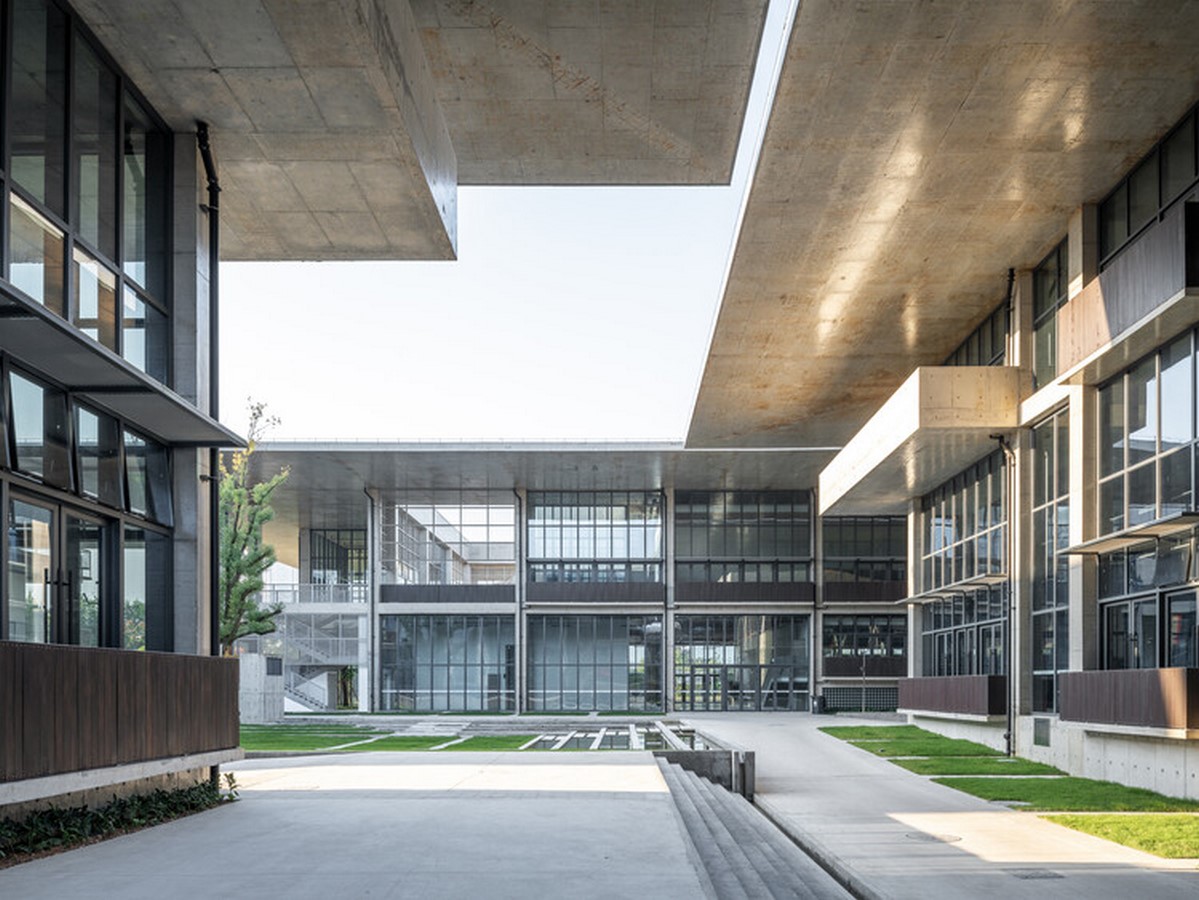
Unity in Diversity: Eight Purposeful Buildings
To seamlessly integrate architecture with nature, the exchange center is conceptualized as eight 4-story buildings, each dedicated to a specific function. These include dormitories (4 blocks), an activity center, library, teaching building, and lecture hall, fostering a harmonious blend of diverse spaces.
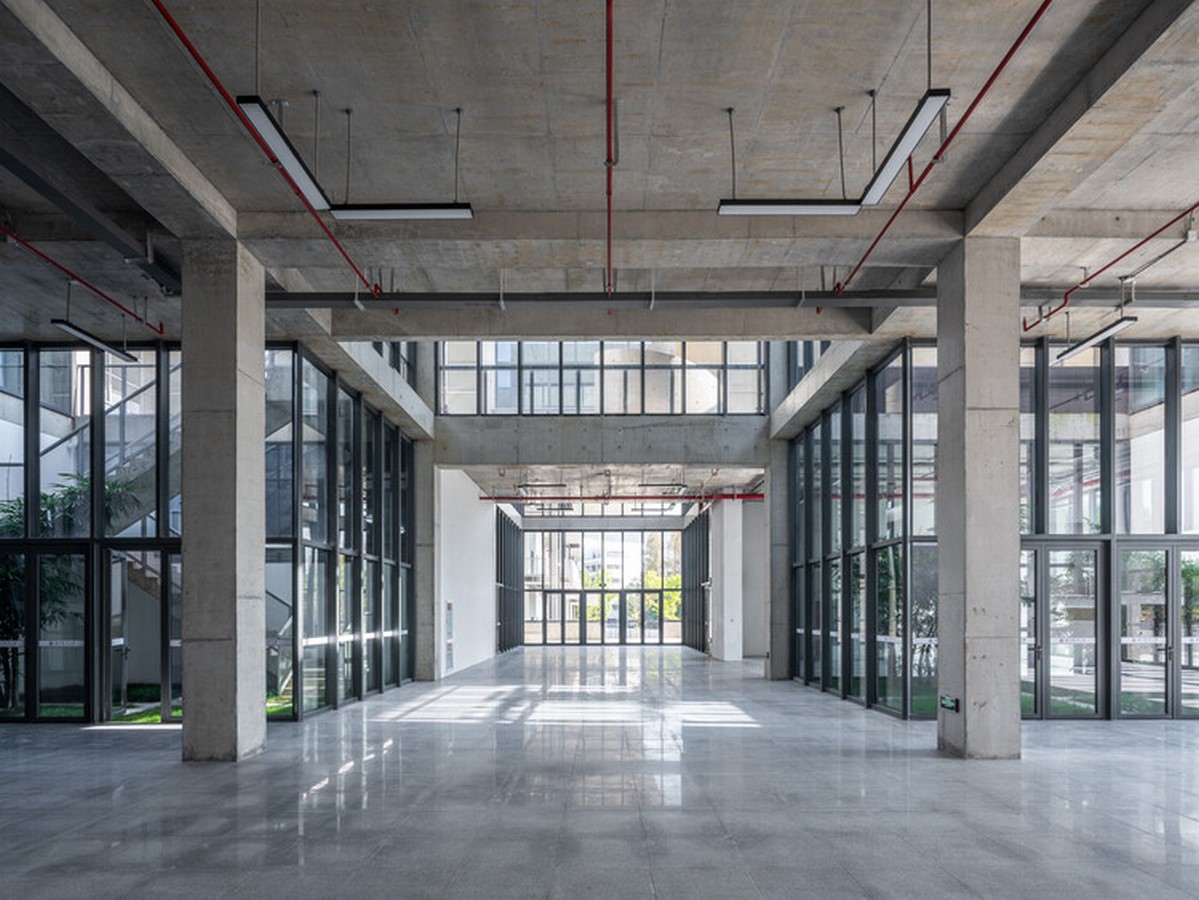
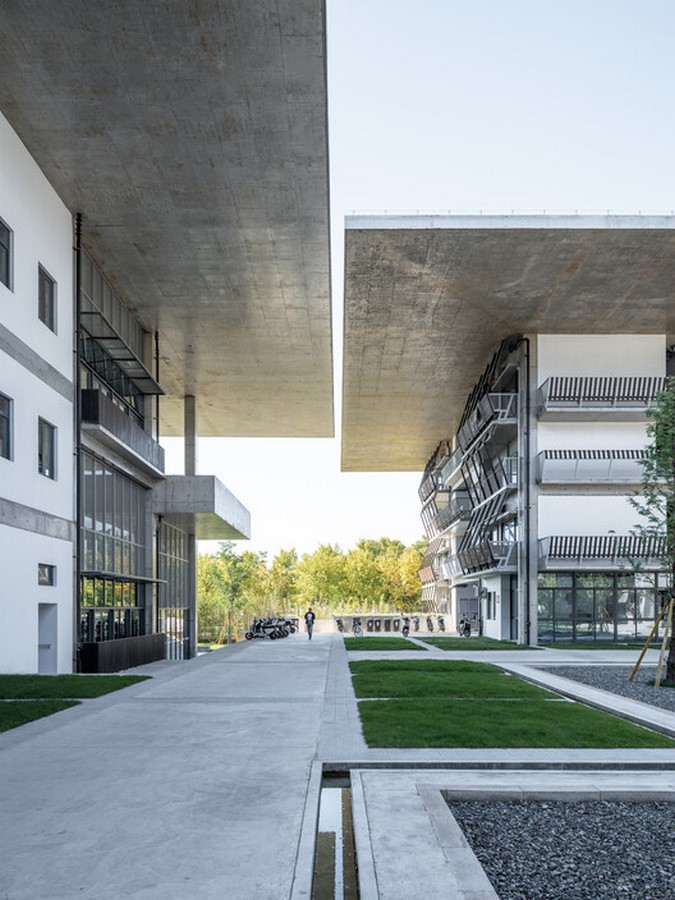
Four-Layered Spatial Arrangement
Breaking away from the conventional closed-up building, the design adopts a four-layered spatial configuration: central courtyard (outdoor), air-conditioned zone (indoor), veranda (semi-indoor), and the area under the overhang (semi-outdoor). The latter two layers form a Gray Space, serving as transitions between indoor and outdoor realms. Inspired by Chinese timber architecture, the buildings feature umbrella-inspired sections with a 10m deep cantilever.
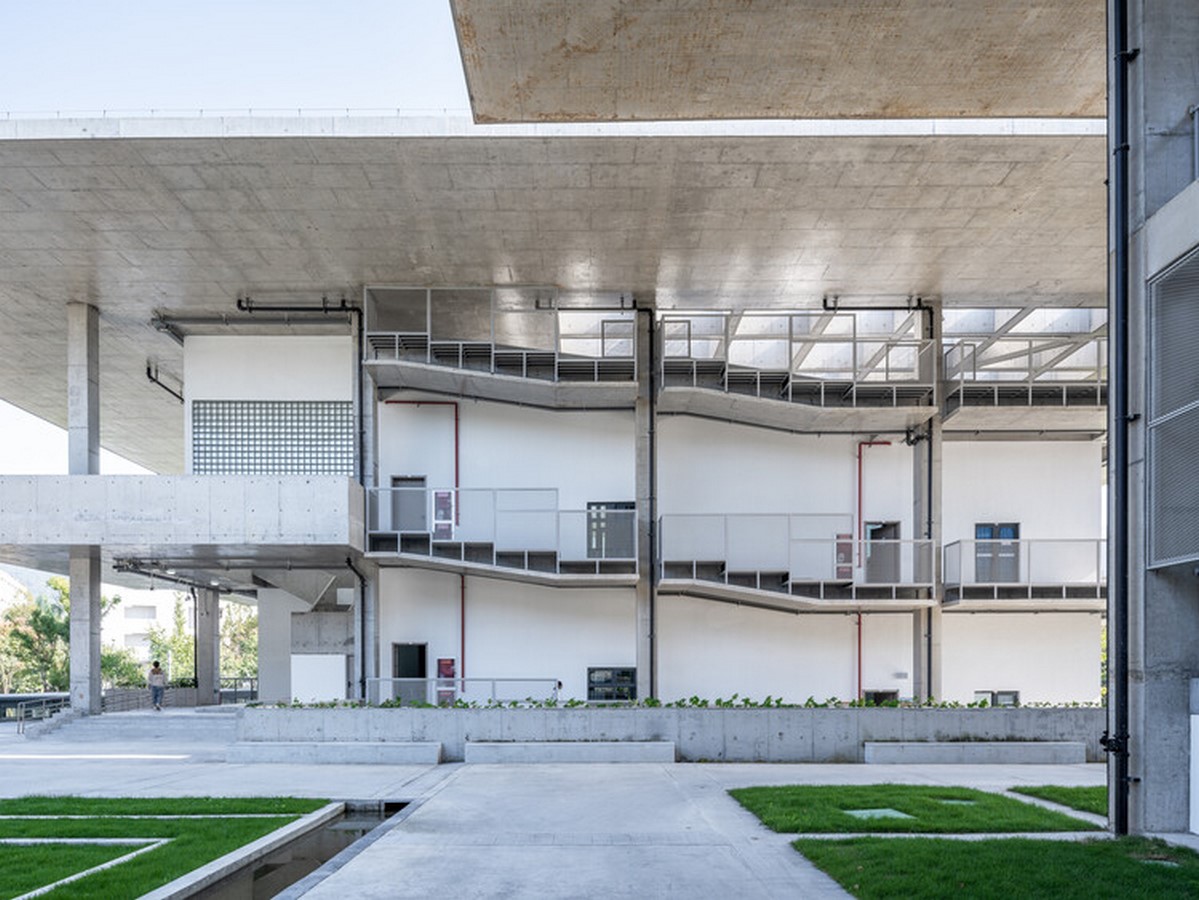
Continuous “Tree Canopy” Roof
Aligning the eaves of the eight structures on the same plane, the roofs form an abstract continuous “tree canopy.” This canopy, interrupted only by three large courtyards, creates a landscape merging architectural and natural elements. The “sky slit” between the buildings allows sunlight and rainwater into the Gray Space, crafting an environment that blurs the boundaries between architecture and nature.
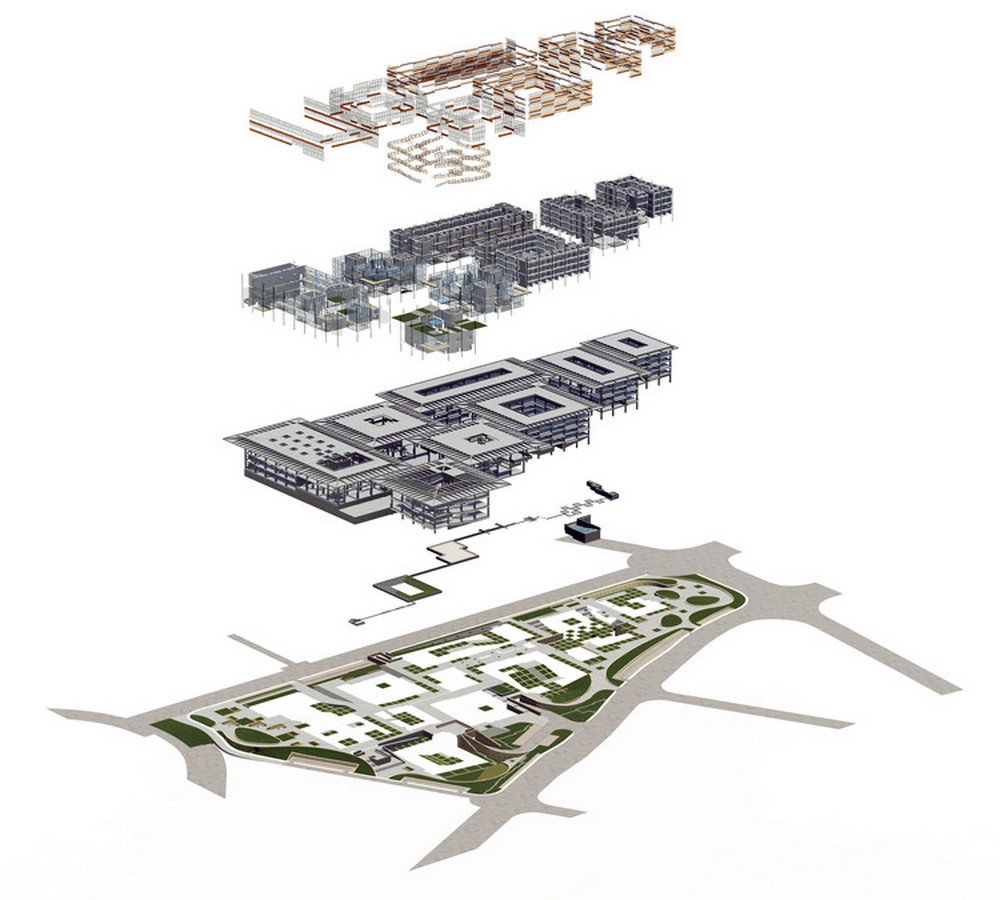
Flexible Spaces for Varied Activities
The veranda space, shaped like a series of open rooms, is shielded by deep eaves, providing suitable spaces for study, communication, or other activities in diverse weather conditions. Overhanging eaves between blocks form an open-air hall, facilitating collective events such as concerts or sports activities. The design encourages a lifestyle with ambiguous indoor-outdoor boundaries, fostering a heightened awareness of the geographical surroundings.
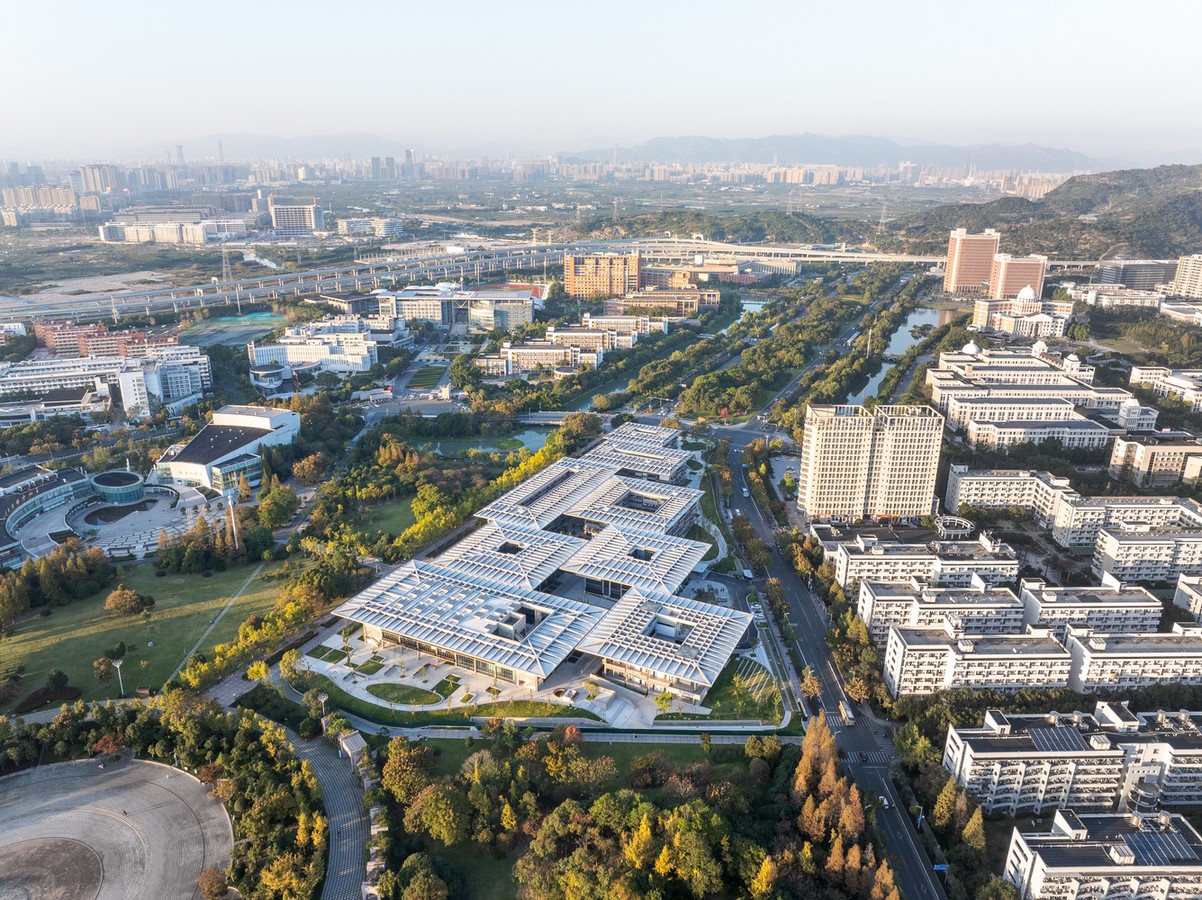
Ocular Health Considerations and Structural Choices
Drawing insights from ophthalmologists at Wenzhou Medical University, the design incorporates ocular health benefits from natural light environments under tree canopies or eaves. Structurally, the project adopts a widely embraced concrete frame system, retaining the textured surface of the concrete for a seamless integration of form and function.
